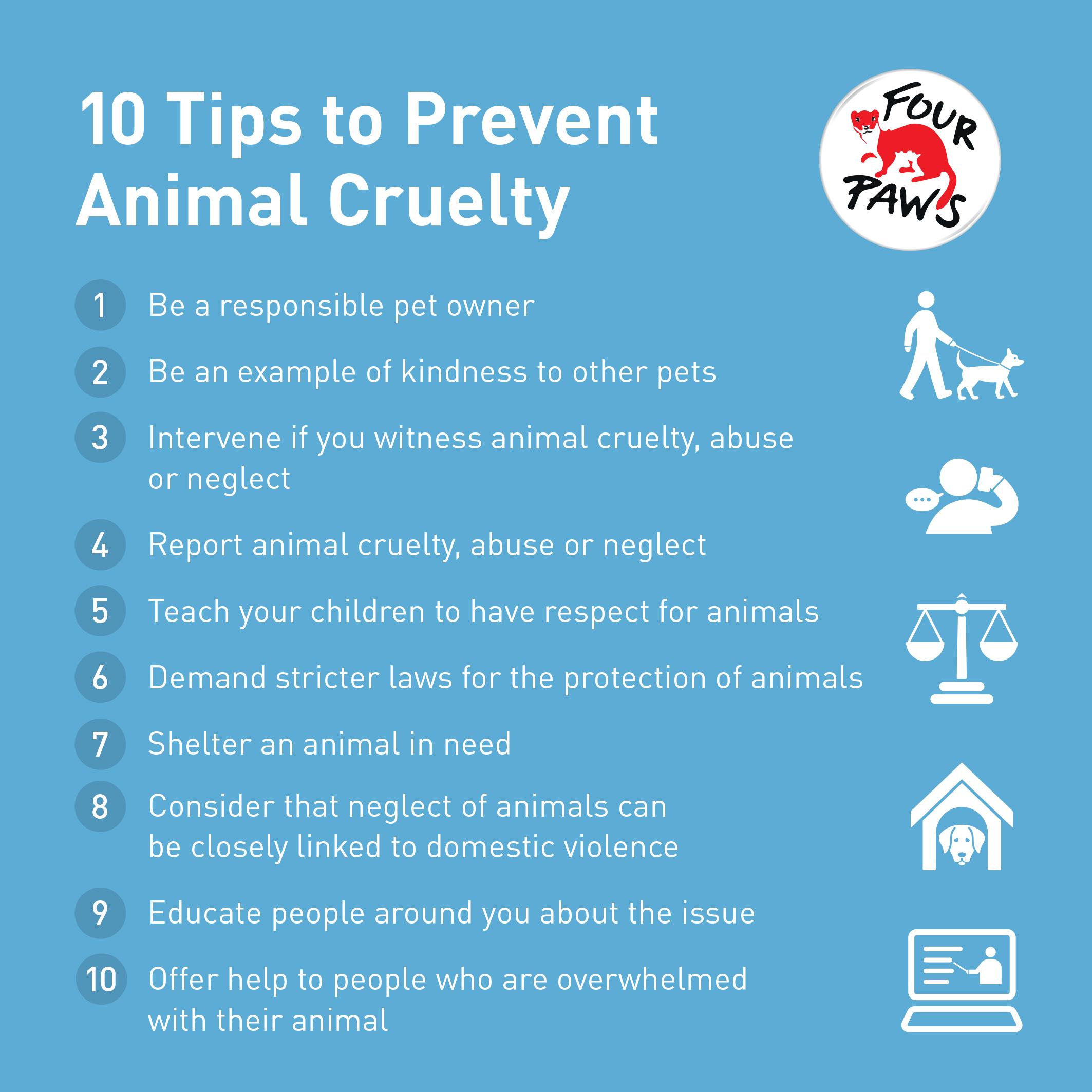Animal cruelty is an unfortunate reality that manifests in various forms—from neglect and abuse to abandonment and exploitation. As members of society, it is incalculably important to recognize the pivotal role we play in addressing this issue, particularly within our communities. But how can each of us contribute effectively to combat this rampant concern? This question invites reflection and promotes discussion on the tangible steps we can implement to forge a collective impact. The challenge lies in transforming awareness into action, which often requires collaboration, compassion, and tenacity.
To embark on this journey, the first step is to foster an environment of empathy towards animals. One way to cultivate this is through education and awareness campaigns. Organizing workshops in schools, community centers, and local libraries can help disseminate information about various forms of animal cruelty and the ethical treatment of animals. Engaging children and adults alike through interactive discussions, films, and literature fosters a deeper understanding of the consequences of cruelty, ultimately encouraging kindness towards all living beings.
Moreover, it is crucial to advocate for local animal welfare organizations. These organizations often operate on limited budgets and rely heavily on community support. Volunteering your time, resources, or skills can significantly bolster their mission. Whether fostering abandoned pets, assisting in transport, or participating in community outreach programs, your contribution is invaluable. Consider hosting a local fundraising event, where the community can come together to support the cause. Such events not only raise funds but also invigorate community spirit around a shared goal.
However, support does not always mean tangible resources. It often encompasses the act of vigilance. Community members can lend their eyes and ears by reporting suspected instances of animal cruelty to the appropriate authorities. Familiarizing yourself with local laws regarding animal welfare—such as breed restrictions, tethering laws, and requirements for adequate shelter—will enhance your ability to help. Moreover, act as an educational bridge by sharing this knowledge with your neighbors. Empowering others to recognize signs of cruelty can create a cultural shift, where people feel responsible for the welfare of animals beyond their own backyard.
Establishing a local advocacy group is another potent strategy. By forming a coalition of like-minded individuals, you can consolidate your efforts to champion animal rights. Regular meetings can be a platform for discussing strategies, sharing successes, and planning future endeavors. Initiatives might include lobbying for stronger enforcement of animal cruelty laws or orchestrating community clean-up days in local parks to promote respect for wildlife habitats. Through united action, the group can rally expenditures towards larger campaigns that might otherwise be unattainable for individuals.
Furthermore, spreading awareness through social media cannot be overlooked. Platforms like Facebook, Twitter, and Instagram have become powerful tools not just for communication but for mobilizing change. Sharing educational content, infographics, success stories, and urgent calls to action can effectively reach a wider audience and inspire global solidarity against animal cruelty. Encourage community members to participate in “share days” where they can spread awareness of current issues or local shelters that need support. This can spark conversations and heighten visibility for causes that might otherwise go unnoticed.
Additionally, implementing pet-friendly policies in your community can play a significant role in fighting cruelty. Work with local businesses and governments to support legislation that protects animal welfare. Advocate for regulations such as mandatory spay/neuter programs, pet adoption incentives, and restrictions on puppy mills. Building relationships with local politicians and community leaders can amplify efforts to champion systemic change while ensuring that animals receive the protection they deserve.
An equally important facet of combating animal cruelty lies in the realm of responsible pet ownership. Hosting community events that promote responsible pet care, such as free vaccination clinics or training workshops, can yield a more conscientious pet-keeping culture. Encourage discussions on the importance of adopting rather than buying pets, and highlight the responsibility of pet parents. Every pet deserves a loving home, and by reinforcing this message, communities can diminish the number of abandoned animals and promote their safe treatment.
The challenge remains—how can we engage those who are indifferent to the plight of animals? One effective approach is to create relatable narratives through community storytelling. Host events where rescue stories are shared, either through live encounters with rescued animals or video presentations from those who have taken the leap to adopt. These personal connections can cultivate empathy and encourage people to join the cause. Consider the impact that a single story can have on someone who might have previously turned a blind eye.
In conclusion, the fight against animal cruelty is not a solitary endeavor but a collective movement. By working together within our communities, we can dismantle the cycles of abuse and neglect that plague our society. Each action, no matter how small, contributes to a larger tapestry of change. Choose to be an advocate. Challenge yourself and others to see the worth in every animal life, and together, we can cultivate a future where kindness prevails. Let us stand united, empowered by knowledge and fueled by compassion, forging a path towards a brighter world for all our four-legged companions.








